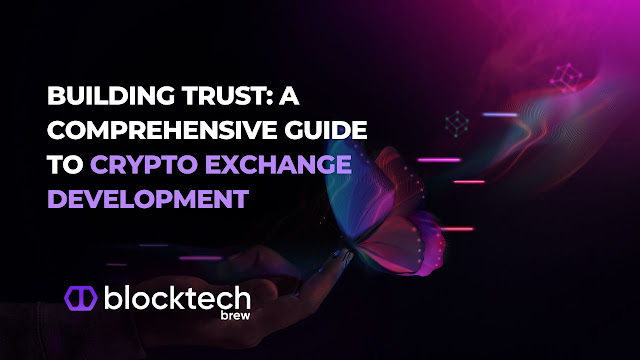Introduction
In the world of cryptocurrency, trust is paramount. As the popularity and adoption of cryptocurrencies continue to rise, the need for reliable and secure crypto exchanges becomes increasingly important. In this comprehensive guide, we will explore the key factors involved in building trust for crypto exchange development. From security measures to user verification procedures, we'll cover everything you need to know to establish a trustworthy and reputable crypto exchange.
Understanding Crypto Exchanges
Crypto exchanges serve as digital marketplaces where users can buy, sell and trade cryptocurrencies. These platforms facilitate the conversion of cryptocurrencies into fiat currencies or other digital assets. However, the decentralized and pseudonymous nature of cryptocurrencies raises concerns about trust and security.
Importance of Trust in Crypto Exchanges
Trust is the foundation upon which successful crypto exchanges are built. Users must feel confident that their funds and personal information are secure. Without trust, potential users may hesitate to engage with an exchange, hindering its growth and adoption. Therefore, establishing and maintaining trust is crucial for the long-term success of any crypto exchange.
Factors Affecting Trust in Crypto Exchanges
Several factors contribute to the trustworthiness of a crypto exchange. These include security measures, user verification procedures, transparency, regulatory compliance, user-friendly interfaces, customer support, reputation management, and more. Let's delve into each of these aspects to understand how they impact trust.
Security Measures for Crypto Exchanges
Ensuring the security of user funds is of utmost importance for crypto exchanges. Robust security measures, such as cold storage wallets, multi-signature authentication, and encryption protocols, are vital to protect against hacking attempts and unauthorized access. Regular security audits and penetration testing can help identify vulnerabilities and strengthen the overall security infrastructure.
User Verification and KYC Procedures
To enhance trust and comply with regulatory requirements, crypto exchanges implement user verification and Know Your Customer (KYC) procedures. These processes involve verifying the identity of users and collecting relevant information to prevent fraudulent activities and money laundering. Implementing strict and efficient verification procedures builds confidence in the exchange's commitment to security.
Transparency and Regulatory Compliance
Transparency is essential for establishing trust in crypto exchanges. Clear and concise communication about the exchange's operations, fees, and policies helps users make informed decisions. Additionally, adhering to regulatory frameworks and obtaining necessary licenses demonstrates a commitment to legal compliance, further enhancing trust among users.
Building a User-Friendly Interface
A user-friendly interface plays a significant role in building trust. A well-designed and intuitive platform enables users to navigate seamlessly, execute trades efficiently, and access relevant information easily. A clutter-free and responsive interface instills confidence in users, encouraging them to engage more actively with the exchange.
Customer Support and Communication
Prompt and reliable customer support is crucial for trust-building. Offering multiple channels of communication, such as live chat, email, and phone support, ensures users can seek assistance whenever needed. Addressing user queries and concerns in a timely and satisfactory manner fosters trust and strengthens the user-exchange relationship.










0 Comments